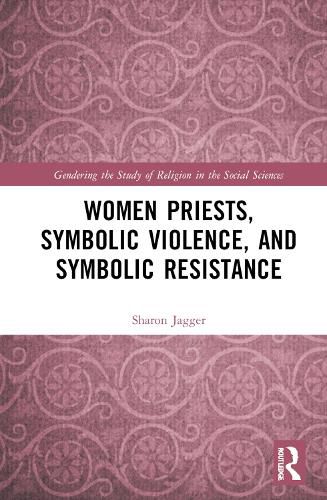Readings Newsletter
Become a Readings Member to make your shopping experience even easier.
Sign in or sign up for free!
You’re not far away from qualifying for FREE standard shipping within Australia
You’ve qualified for FREE standard shipping within Australia
The cart is loading…






This book explores, from a feminist sociological viewpoint, the ways gender is constructed in the priesthood in the Church of England, and the political, emotional, and spiritual resources generated by women priests in their resistance praxis against a discriminating structure. Despite the increasing numbers of women being ordained, the Church continues to structurally support and legitimise the view that the priesthood should be exclusively male, and women priests still experience gender discrimination and/or differentiation. Drawing on Bourdieu's notion of symbolic violence, the book aims to fill a gap in the research literature by showing how women priests do not necessarily misrecognise or collude in their domination but engage in hidden resistances and subversions. Based on empirical research, the study reveals that whilst there are barriers to protesting and complaining in conventional ways, there are also significant resistances in how women priests perform their role. The themes addressed are relevant for sociologists of religion and scholars of gender and women's studies, as well as those with an interest in theology and Christian ministry.
$9.00 standard shipping within Australia
FREE standard shipping within Australia for orders over $100.00
Express & International shipping calculated at checkout
This book explores, from a feminist sociological viewpoint, the ways gender is constructed in the priesthood in the Church of England, and the political, emotional, and spiritual resources generated by women priests in their resistance praxis against a discriminating structure. Despite the increasing numbers of women being ordained, the Church continues to structurally support and legitimise the view that the priesthood should be exclusively male, and women priests still experience gender discrimination and/or differentiation. Drawing on Bourdieu's notion of symbolic violence, the book aims to fill a gap in the research literature by showing how women priests do not necessarily misrecognise or collude in their domination but engage in hidden resistances and subversions. Based on empirical research, the study reveals that whilst there are barriers to protesting and complaining in conventional ways, there are also significant resistances in how women priests perform their role. The themes addressed are relevant for sociologists of religion and scholars of gender and women's studies, as well as those with an interest in theology and Christian ministry.